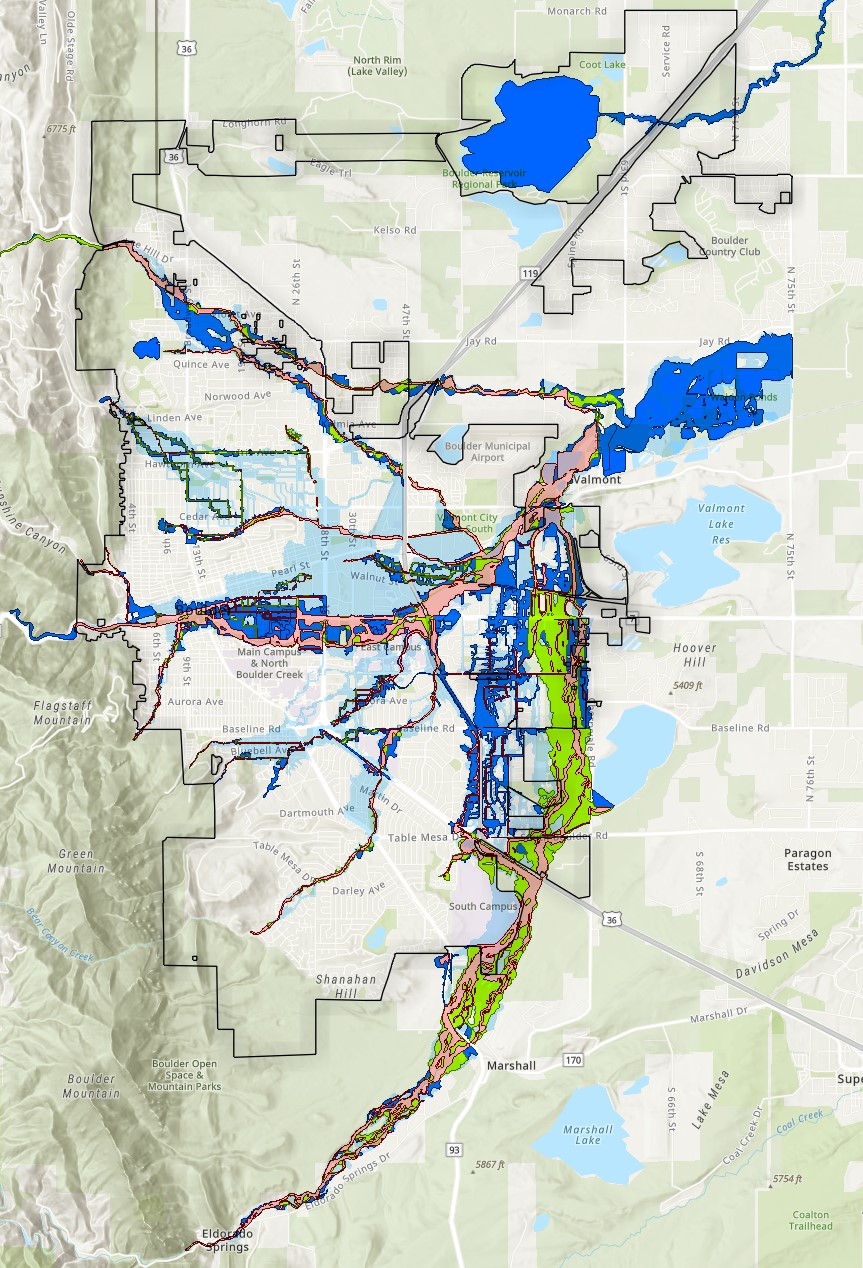The city of Boulder rests at the base of the Rocky Mountain Foothills and is home to Boulder Creek, its 14 tributaries and Boulder Slough (diverted water from Boulder Creek to satisfy irrigation company water rights). Due to its geographic location and features, the city of Boulder has the highest risk of flash flooding in the state of Colorado.
Many neighborhoods throughout the city experience flooding during storms, and some are at a higher risk to extreme flooding because they are located near a major drainageway. The City of Boulder encourages all community members to be aware of their flood risk and to take the necessary precautions to help protect life and property.
